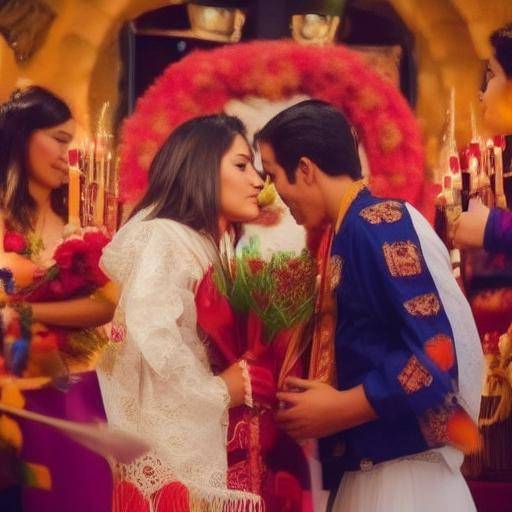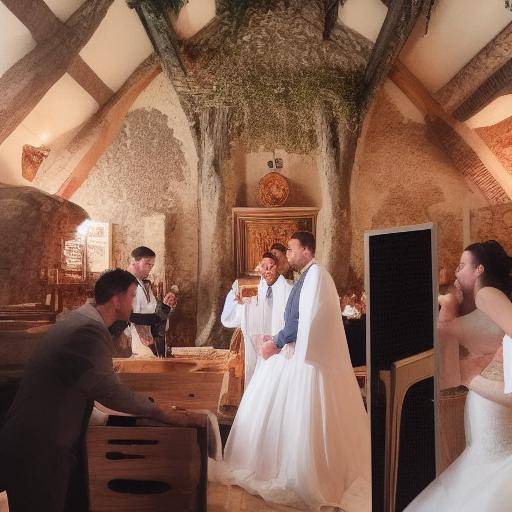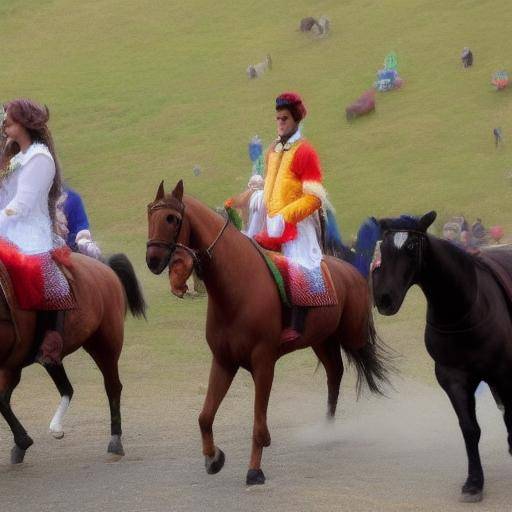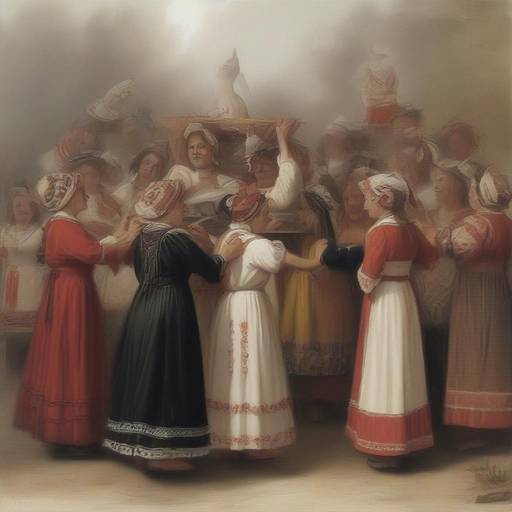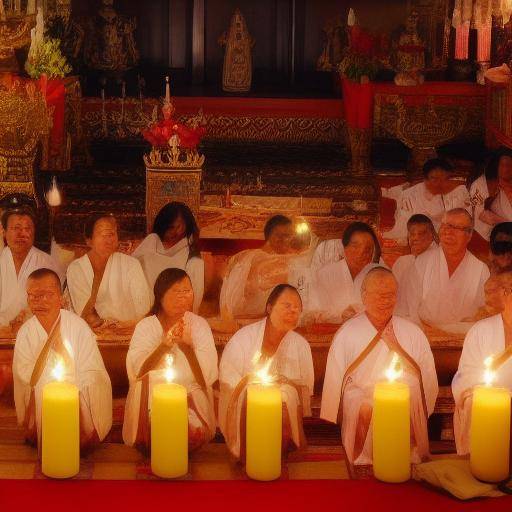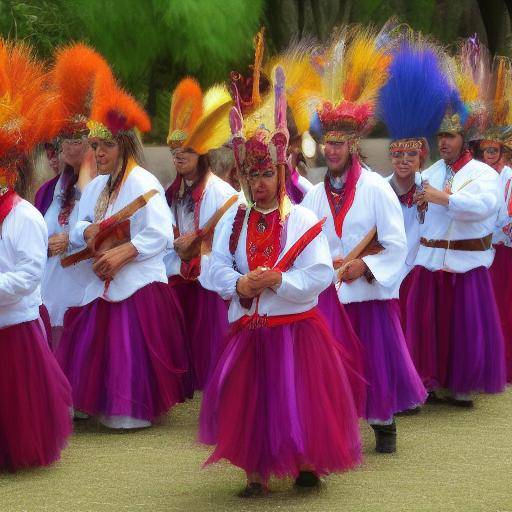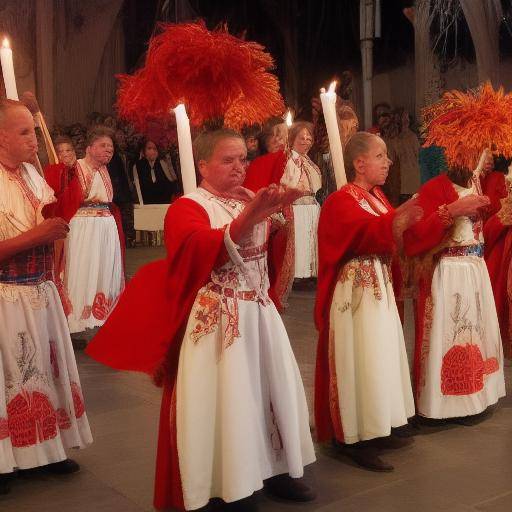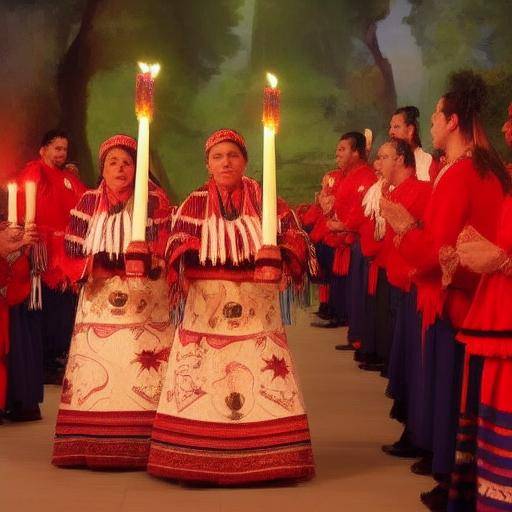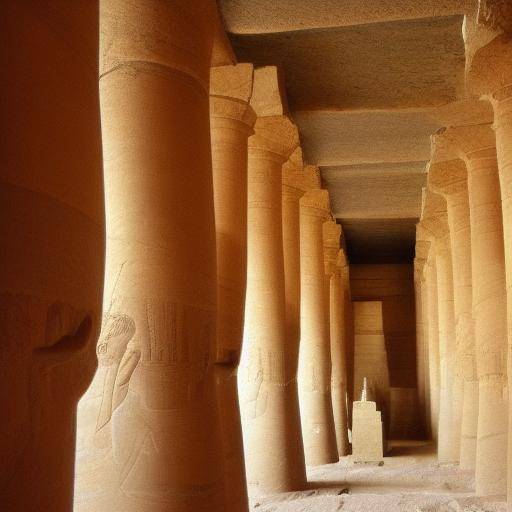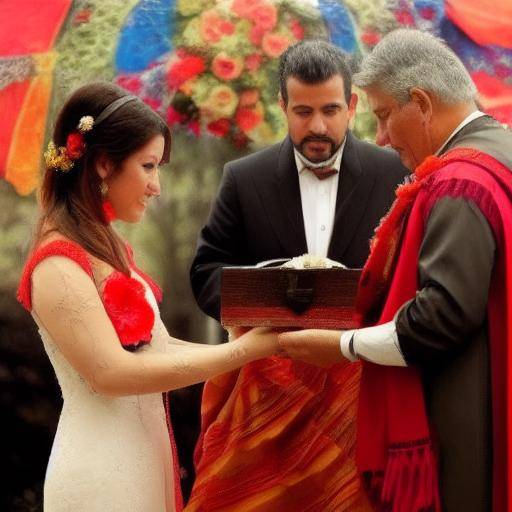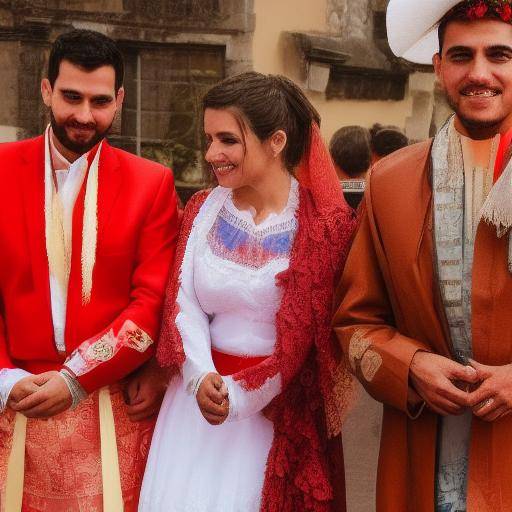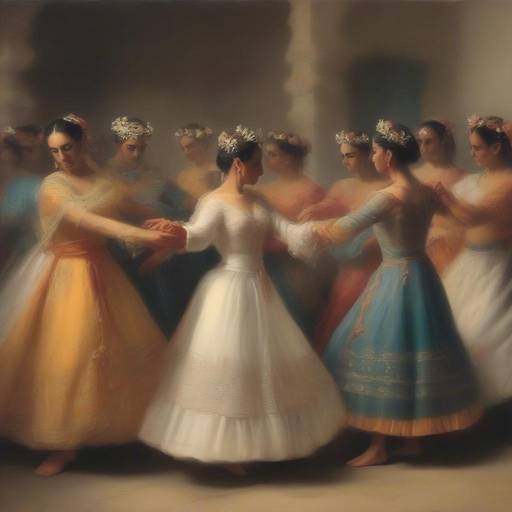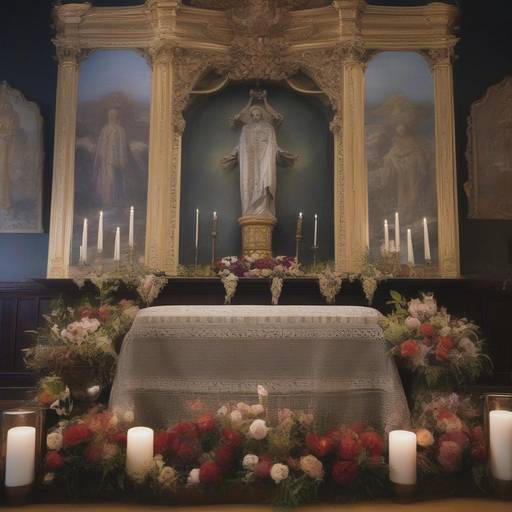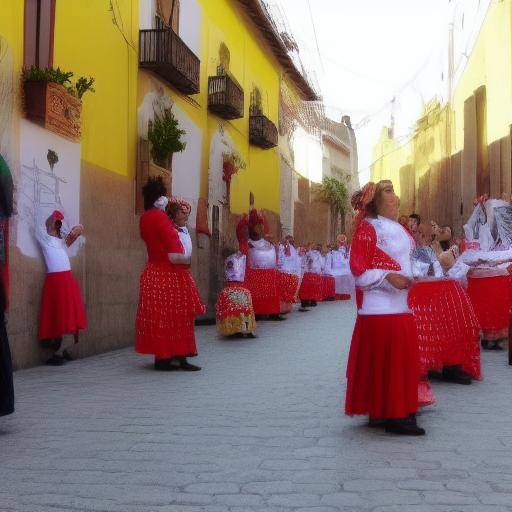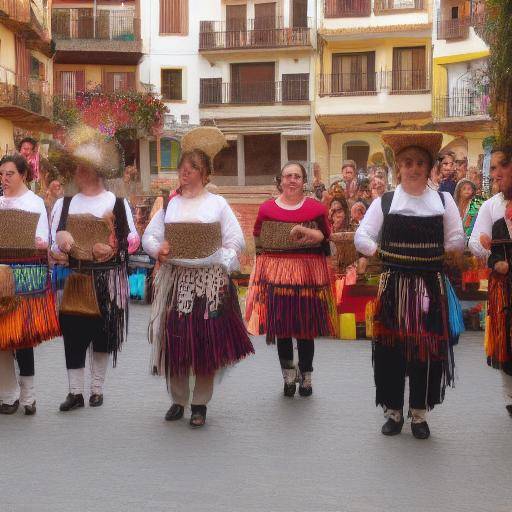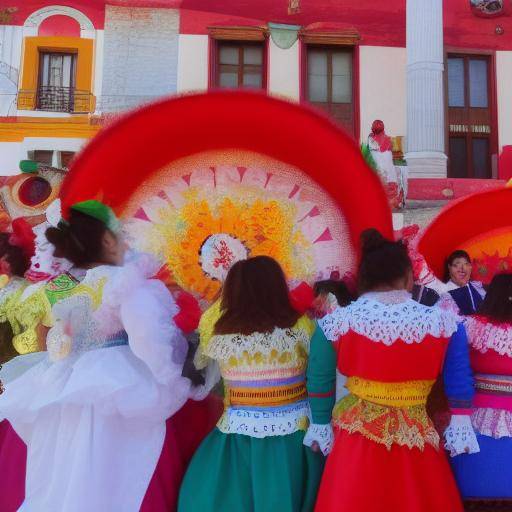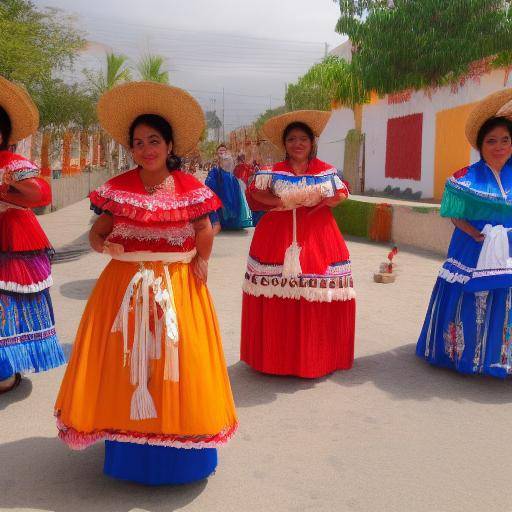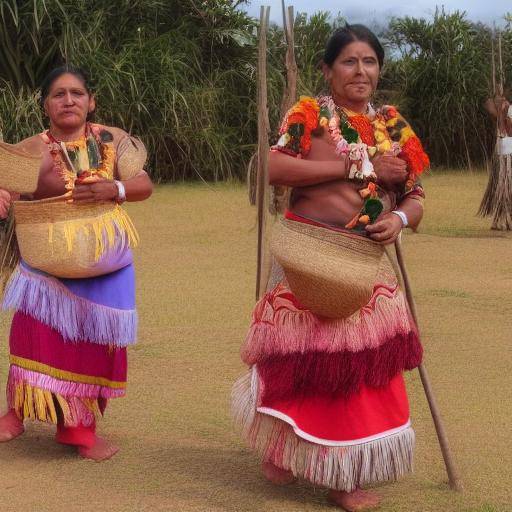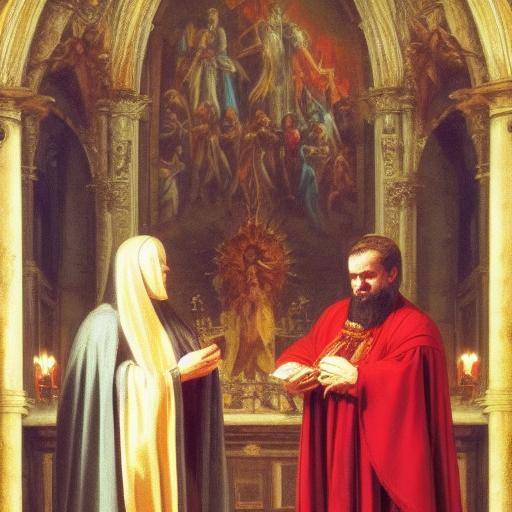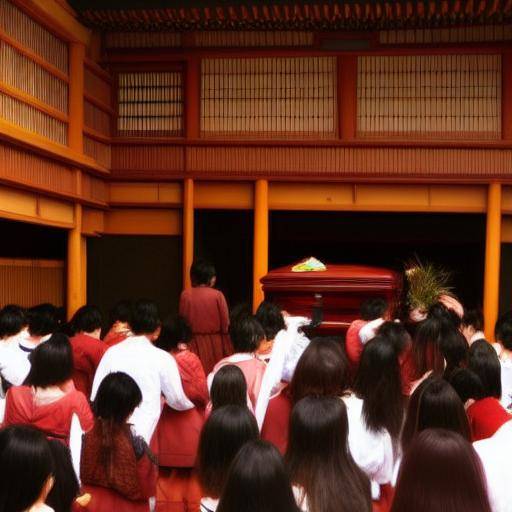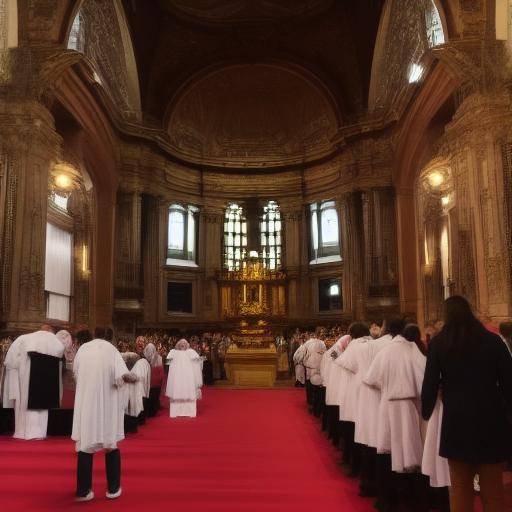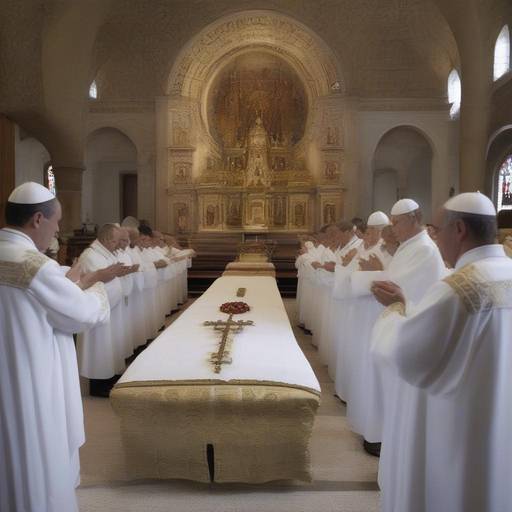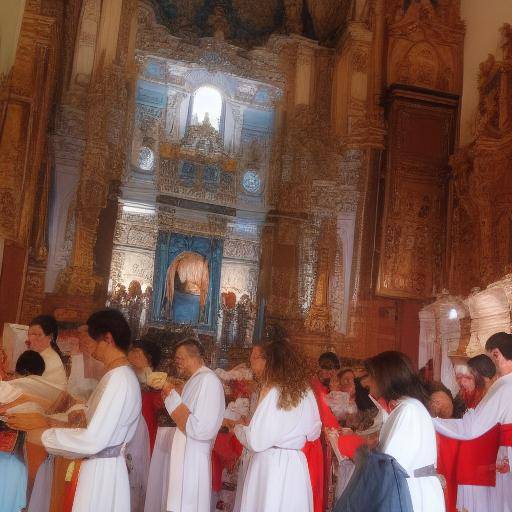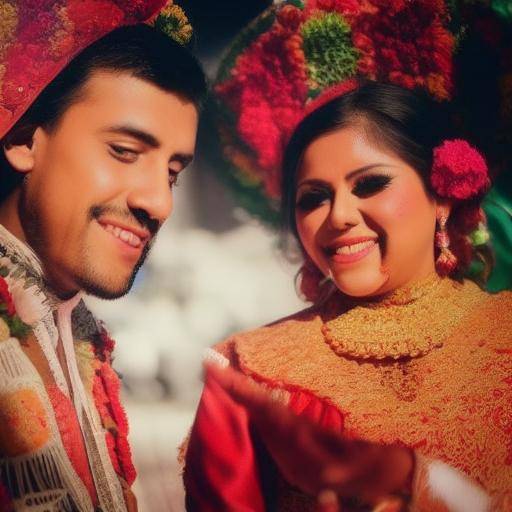
Mexico's cultural diversity is reflected in its matrimonial traditions, which are rich in meaning, symbolism and historical roots. In this article, we will explore marriage traditions in Mexican culture, deepening in deep-rooted rituals and their importance in contemporary society. From history, current meaning, to future trends, this article offers a comprehensive analysis of a fundamental aspect of Mexico's cultural wealth.
Introduction
Matrimonial traditions in Mexico are a unique manifestation of the country's rich cultural heritage. From ancient pre-Columbian civilizations to Spanish colonial influence, Mexican marriage traditions are a compendium of history, customs, religion and symbolism. In this article, we will explore the wealth and diversity of marriage practices in Mexico, from its origins to its relevance today. We will discover the rooted rituals that give meaning to marriage union and its impact on contemporary culture.
History and Cultural Context
Matrimonial traditions in Mexico have their roots in ancient pre-Hispanic civilizations, such as Aztecs, Mayas, and other indigenous cultures. These civilizations celebrated marriage ceremonies imbued with symbolism and traditions that honored the gods, nature and communities. With the arrival of the Spanish conquerors, marriage practices intertwined with Catholic traditions, leading to a syncretization of rituals and ceremonies.
During the colonial period, marriage practices were established that combined indigenous elements with the Catholic rite, giving rise to traditions such as the exchange of harbors, marriage ties and the elaborate wedding ceremony. These historical influences have shaped Mexican marriage traditions to the present, creating a rich amalgam of customs rooted in popular culture.
Mexico's cultural diversity is reflected in the multiplicity of marriage traditions throughout the country. From the vibrant festivities in the region of Oaxaca to the solemn ceremonies in the magical villages, Mexican marriage traditions witness the country's historical legacy and cultural wealth.
Analysis in Deep
Mexican marriage traditions are not only bearers of historical legacy, but also play a fundamental role in contemporary society. These practices not only unite couples, but also strengthen family and community ties. The symbolic and cultural value of Mexican marriage traditions transcends the mere nuptial celebration, reflecting the collective identity and the continuity of ancestral customs.
Today, marriage traditions continue to evolve, adapting to changing social dynamics. Although many rituals remain intact, the influence of globalization and new cultural perspectives is shaping contemporary marriage ceremonies, where the creativity and individuality of couples are intertwined with entrenched practices.
Comprehensive review
The cultural and symbolic root of Mexican marriage traditions is manifested in the wealth of their applications through different regions and communities. From civil marriage to religious ceremony, Mexican marriage traditions offer a diverse range of practices, each with its own symbolism and meaning. The exchange of arrh, the loop of ceremony, and the elaborate wedding ceremony, all these rituals form a cultural upholstery that transcends the individual to be an integral part of the collective identity.
Despite the historical and cultural depth of Mexican marriage traditions, these practices also pose challenges in a constantly changing world. Gender equality, cultural diversity and new forms of personal expression have led to a re-evaluation of some matrimonial traditions, generating discussions about their relevance and adaptability in contemporary society.
Comparative analysis
By comparing Mexican marriage traditions with other cultures, similarities and contrasts are revealed that enrich the understanding of cultural diversity. The importance of community celebration, symbolism of rituals and emphasis on family unity are elements that resonate in marriage traditions around the world. However, specific practices, symbols and symbolism vary widely, giving each culture a unique and enriching identity.
Practical Tips and Recommendations
For those interested in celebrating a Mexican-influenced wedding, it is important to understand the meaning and history behind marriage traditions. Incorporating elements such as the roots, the loop or the traditional "lazo" ceremony not only adds cultural wealth to the celebration, but also honors the heritage and historical legacy of Mexican culture. In addition, considering the participation of mariachi musicians, the inclusion of traditional meals, and the decoration with folkloric elements can enhance the authenticity and beauty of the celebration.
Industry Perspectives and Expert Reviews
Experts in anthropology, history and cultural traditions emphasize the ethnographic and symbolic value of Mexican marriage traditions, emphasizing their importance for the study of cultural identity and historical heritage. Current trends indicate a renewed interest in preserving and celebrating traditional marriage practices, both within and outside Mexico, and a way of assessing and promoting cultural diversity.
Case Studies and Real Life Applications
Examples of couples who have incorporated Mexican marriage traditions at their weddings offer a look at the beauty and emotionalness of these celebrations. From intimate ceremonies on the beaches of the Riviera Maya to sumptuous weddings in the historic center of Mexico City, couples have found in these traditions a way to honor their roots and loved ones, transcending borders and cultures.
Future Trends and Predictions
The future of marital traditions in Mexican culture is full of renewed interest in the preservation and revaluation of these ancestral practices. As global society moves towards a greater appreciation of cultural diversity, Mexican marriage traditions are expected to be prominent in wedding celebrations, both within and outside Mexico.
Conclusion
Matrimonial traditions in Mexican culture are a powerful manifestation of the country's cultural heritage, rooted in a historical legacy that gives them meaning and relevance. Over the centuries, these practices have evolved and continued to mark a profound impact on contemporary society, preserving collective identity and enriching wedding celebrations with deep and deep symbolism.
Frequently asked questions
1. What is the origin of the "lazo" tradition at Mexican weddings?
The tie is a tradition that dates back to the wedding ceremonies in the colonial period, where a loop of flowers, ribbons or laces was used to symbolize the union and ties of love between the couple. This tradition has remained a symbol of indissoluble union and the blessing of the couple.
2. What is the importance of arras at Mexican weddings?
Roots, or gold coins, represent prosperity and provision shared in marriage. This ritual symbolizes mutual trust, economic support and prosperity that the couple undertakes to share.
3. How has the celebration of weddings in Mexico changed in the modern era?
The influence of global trends and new cultural perspectives has led to an evolution in Mexican weddings, incorporating contemporary elements without losing the essence of entrenched marriage traditions.
4. What are the essential elements of a traditional Mexican wedding?
A traditional Mexican wedding includes rituals such as the exchange of arras, the loop of ceremony, the "misa of candles", as well as cultural elements such as mariachi music and typical Mexican food.
5. How can I incorporate Mexican marriage traditions at my own wedding?
You can incorporate elements such as the bow of ceremony, arras, mariachi music or traditional Mexican food to give a cultural and meaningful touch to your wedding celebration.
6. What impact do Mexican marriage traditions have on contemporary society?
Mexican marriage traditions reflect cultural identity and strengthen family and community ties, maintaining their relevance and impact on contemporary society.
In short, marriage traditions in Mexican culture are a living testimony of the country's rich cultural heritage, rooted in history, symbolism and meaning. Their evolution over time and their impact on contemporary society underscore their importance in the preservation of collective identity and the valuation of cultural diversity. These practices not only enrich wedding celebrations, but also honor and perpetuate Mexico's rich cultural tradition.
With a deeper understanding of marriage traditions in Mexican culture, couples can infuse their wedding celebrations with a deeper and deeper meaning, honoring both their own legacy and Mexico's rich cultural diversity.
This article offers enriching prospects for marriage traditions in Mexican culture. If you want to discover more about this fascinating theme, we invite you to explore our section of related articles to deepen your understanding of marriage traditions and Mexican culture.



